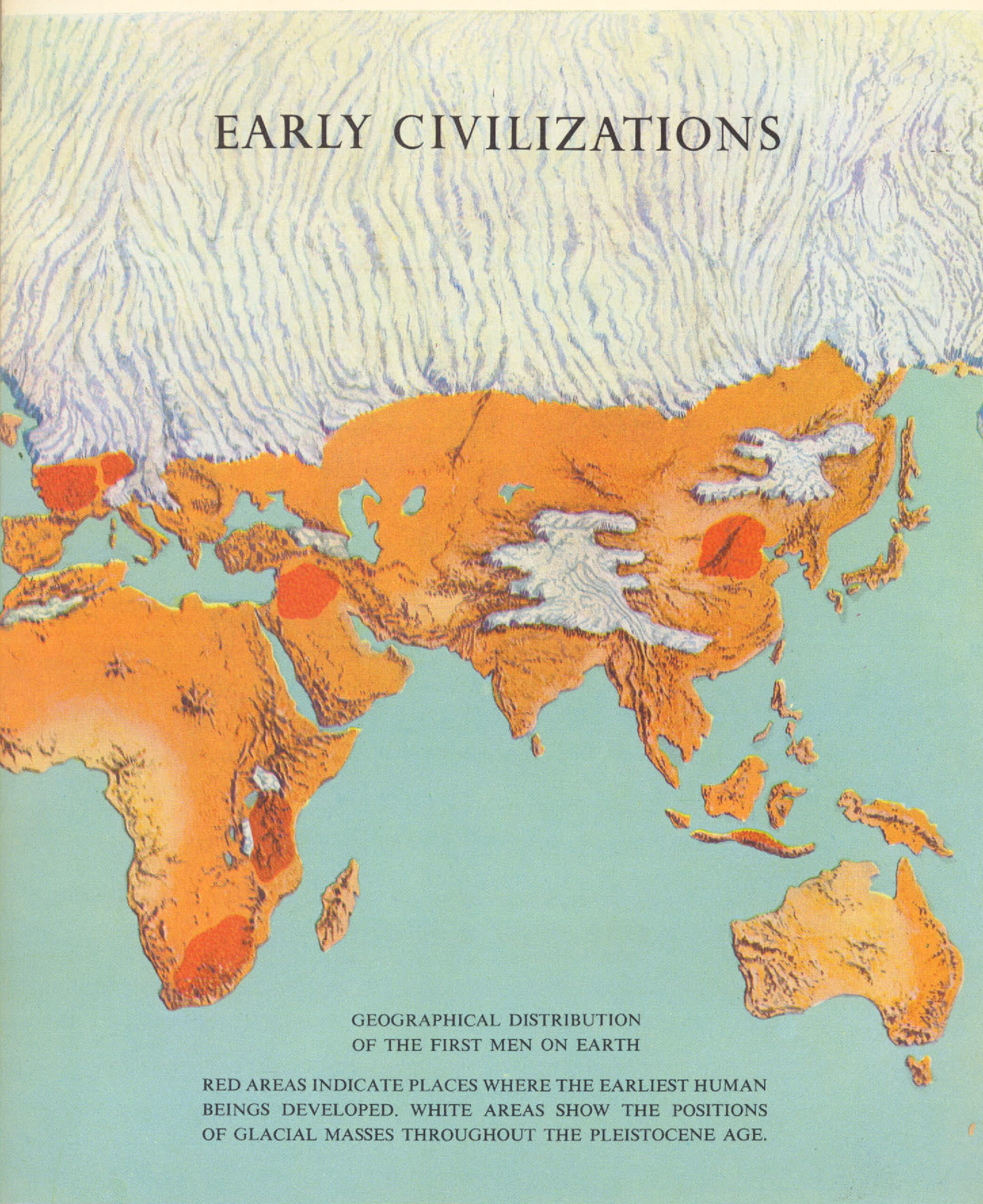About 3000 B. C., when the Pharaohs ruled Egypt and Babylon was the home of mighty kings, bands of sailors set out from Asia Minor. They followed a little chain of islands that led northward across the unexplored sea that, centuries later, would be called the Mediterranean. If the islands had not been there, the sailors would never have dared to sail so far from home. Asia, the only world they knew, stopped at the eastern store of the sea. Some of the men were afraid that they might suddenly reach the end of the world and drop over it …
Read More »Tag Archives: Americas
The Coming of Man
About 400,000 years ago, a group of people were gathered at the mouth of a cave. They had a fire in which they were roasting deer meat and around them lay the bones of monkeys, wild pigs and water buffalo from previous meals. One of the women was picking berries from the nearby bushes. A man sitting close to the fire chipped away at a broken stone he would use to cut off chunks of the cooked meat. Another man, too hungry to wait, gnawed the marrow from some bones. The cave was one of several not far from what …
Read More »
